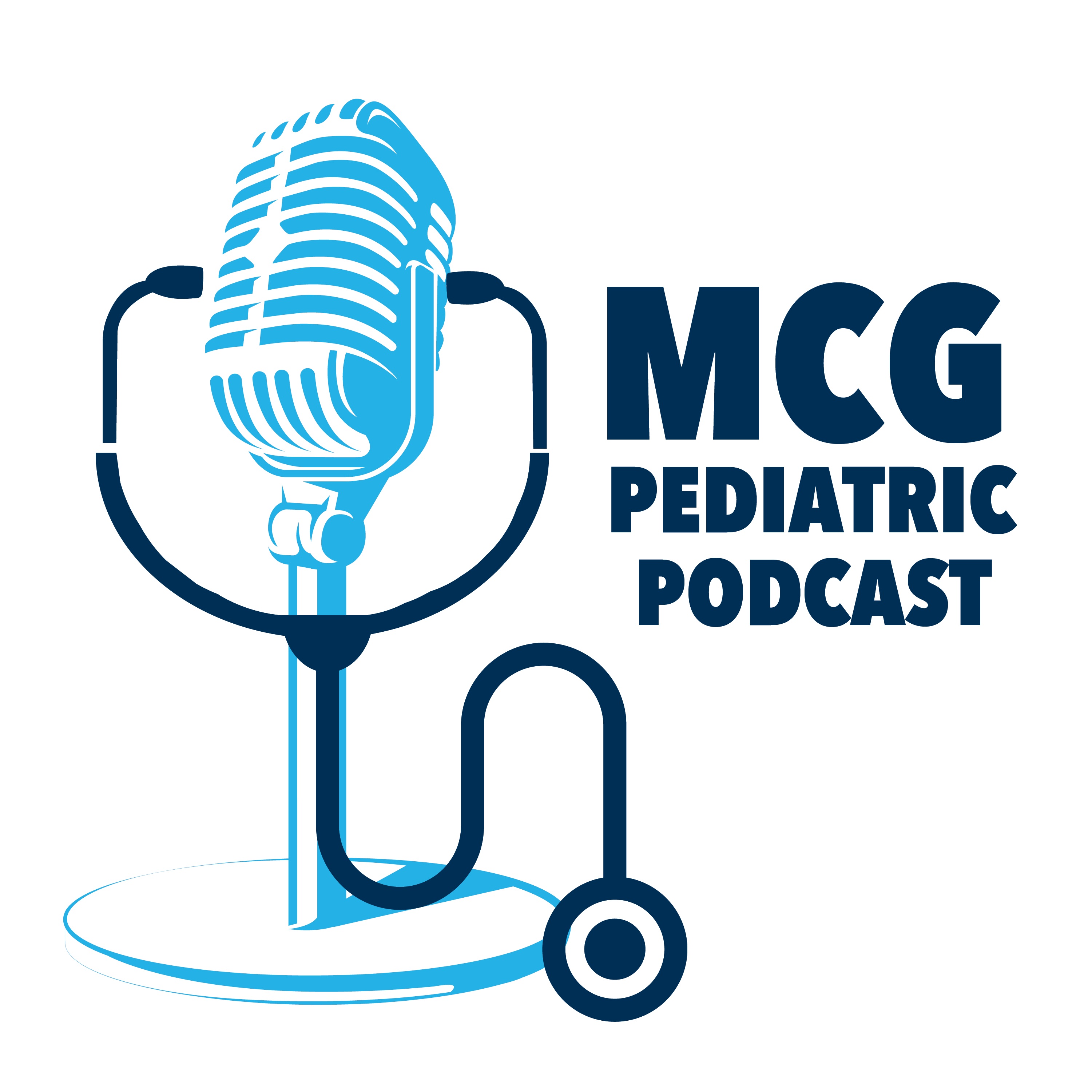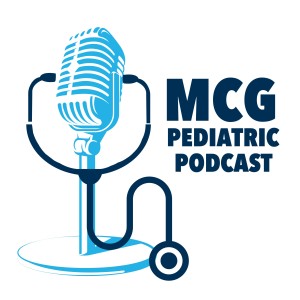
45.9K
Downloads
77
Episodes
The focus of the MCG Pediatric Podcast is to produce educational material on pediatric general and subspecialty topics that will be helpful in everyday clinical practice. These discussions will be led by our pediatric residents with a general or subspecialty faculty member who is an expert in the field.
Episodes

Tuesday Jun 01, 2021
Trisomy 13 & 18 Ethical Considerations with Dr. Paul Mann
Tuesday Jun 01, 2021
Tuesday Jun 01, 2021
Trisomy 13 & 18 Ethical Considerations with Dr. Paul Mann
PARTICIPANTS:
- Paul Mann, MD
- Zachary Hodges, MD
About Our Guest:
Dr. Paul Mann is an Associate Professor of Pediatrics, Chief of the Division of Neonatology and practicing neonatologist at the Medical College of Georgia. He also is the Director of Clinical Ethics for the Augusta University Center for Bioethics and Health Policy.
Free CME Credit: https://mcg.cloud-cme.com/course/courseoverview?P=0&EID=7772
Learning Objectives:
By the end of listening to this episode, learners should be able to:
- Recognize aneuploidies as a common cause of genetic abnormalities in pregnancy.
- Recognize the historically pessimistic counseling given to families of children with trisomy 13 and 18 and how this might continue to influence our counseling today.
- Recall how most babies are prenatally diagnosed with trisomy 13 and 18.
- Describe the life-limiting malformations associated with trisomy 13 and 18.
- Recognize the recent improvement in prognosis of children with trisomy 13 and 18 as they are being selectively offered more intensive and surgical care.
- Sensitively counsel families about the general prognosis of newborns with trisomy 13 and 18 while avoiding inaccurate and problematic language such as “lethal and incompatible with life.”
Thank you for listening to this episode from the Department of Pediatrics at the Medical College of Georgia. If you have any comments, suggestions, or feedback- you can email us at mcgpediatricpodcast@augusta.edu. Remember that all content during this episode is intended for informational and educational purposes only. It should not be used as medical advice to diagnose or treat any particular patient. Clinical vignette cases presented are based on hypothetical patient scenarios. We look forward to speaking to you on our next episode of the MCG Pediatric Podcast.
Peer Reviewers: Amy Thompson, MD & MCG Pediatric Podcast Committee
References:
- Kett JC. Who Is the Next "Baby Doe?" From Trisomy 21 to Trisomy 13 and 18 and Beyond. Pediatrics. 2020;146(Suppl 1):S9-S12. doi:10.1542/peds.2020-0818D
- American College of Obstetricians and Gynecologists’ Committee on Practice Bulletins—Obstetrics; Committee on Genetics; Society for Maternal–Fetal Medicine. Practice Bulletin No. 162: Prenatal Diagnostic Testing for Genetic Disorders. Obstet Gynecol. 2016;127(5):e108-e122. doi:10.1097/AOG.0000000000001405
- Neonatology: Management, Procedures, On-Call Problems, Diseases, and Drugs. Stamford, Conn: Appleton & Lange, 1999. Print.
- McCaffrey MJ. Trisomy 13 and 18: Selecting the road previously not taken. Am J Med Genet C Semin Med Genet. 2016;172(3):251-256. doi:10.1002/ajmg.c.31512
- Bajinting A, Munoz-Abraham AS, Osei H, Kirby AJ, Greenspon J, Villalona GA. To operate or not to operate? Assessing NSQIP surgical outcomes in trisomy 18 patients [published online ahead of print, 2020 Jun 5]. J Pediatr Surg. 2020;S0022-3468(20)30369-9. doi:10.1016/j.jpedsurg.2020.05.037
- Neubauer K, Boss RD. Ethical considerations for cardiac surgical interventions in children with trisomy 13 and trisomy 18. Am J Med Genet C Semin Med Genet. 2020;184(1):187-191. doi:10.1002/ajmg.c.31767
- Wightman A, Kett J, Campelia G, Wilfond BS. The Relational Potential Standard: Rethinking the Ethical Justification for Life-Sustaining Treatment for Children with Profound Cognitive Disabilities. Hastings Cent Rep. 2019;49(3):18-25. doi:10.1002/hast.1003
- Nelson KE, Rosella LC, Mahant S, Guttmann A. Survival and Surgical Interventions for Children With Trisomy 13 and 18 [published correction appears in JAMA. 2017 May 2;317(17 ):1803]. JAMA. 2016;316(4):420-428. doi:10.1001/jama.2016.9819

No comments yet. Be the first to say something!